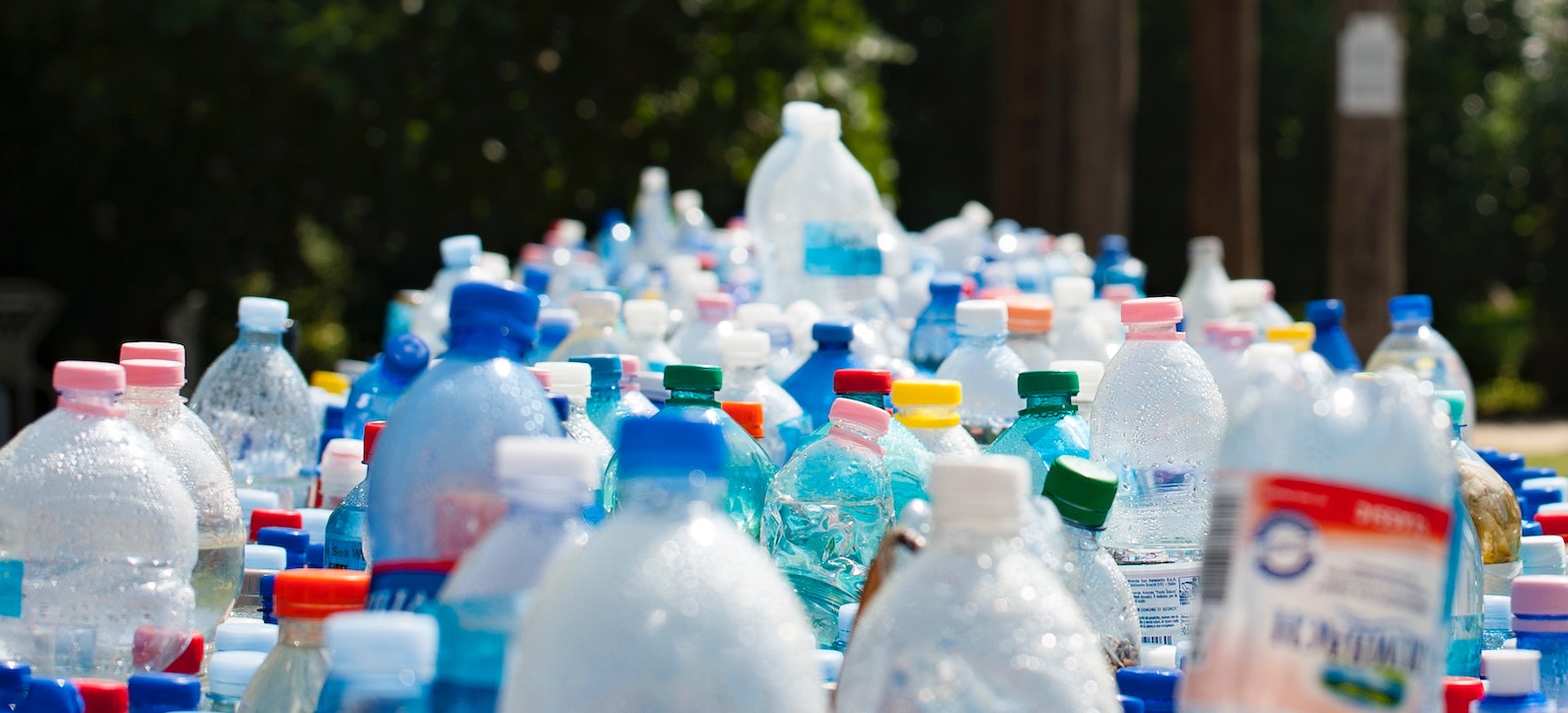Supermarkets are the key players in the war on throwaway plastic and can half their waste by 2025, but are they doing enough?
A recent Greenpeace report identifies 54 grocery categories where the food giants should focus their efforts on in order to reach the 50% cut in plastic use by 2025.
By changing the packaging for 13 popular products such as fizzy drinks, fruit and vegetables, as well as household detergents, supermarkets could make a huge impact. This kind of innovative thinking would cut plastic by around 35%, the equivalent of removing 45 billion pieces of supermarket plastic from the shelves. That’s a whopping 300,000 tonnes and the weight of more than 7,000 supermarket delivery lorries.
Previous research has not detailed the number of plastic components, such as individual lids, labels and protective films, and previous studies have not examined the plastic in terms of product categories, like bottled water, fizzy drinks, household detergents and vegetables.

Greenpeace’s report provides the most up-to-date calculations of how much plastic packaging our supermarkets are using. It also explains how all UK supermarkets could half their use of plastic packaging by 2025. Importantly, the report provides a unique sector-wide view for the first time. By identifying the “hot spot” product categories which the new data sets suggest puts the most single-use plastic onto the market, the report points out the product categories that have the highest potential for plastic reduction.
However, there is also an other side to this story
What are the alternatives to plastic? Many wood, paper and cardboard materials are actually producing more harmful carbon emissions and in many cases are just as unnecessary as their plastic alternatives. Some paper based packaging is coated with non-recyclable materials which shows that decisions to ditch plastic are often made under pressure and without considering the environmental impact of substitute materials.
So what can be done to achieve a sustainable and lasting solution?
Government legislation and regulation are urgently needed to ensure higher standards and the use of correct materials, suitable for recycling and re-use by all supermarkets, food producers and resellers.
Incorporating eco-friendly alternatives like sugarcane packaging can significantly contribute to these efforts. Terms like sugarcane packaging Australia are becoming increasingly relevant as businesses look for sustainable packaging solutions that are both renewable and biodegradable. These options help reduce environmental impact and align with the push for higher sustainability standards.
Consumers play a vital role too
Many supermarkets already offer a refill service for some of their fresh deli and dried food. Some fruit and vegetables can be bought loose or packed in reusable bags but most consumers are simply not concerned or enlightened enough to go to the extra trouble of packing their own.
Another novel idea, still widely favoured in the Nordics and many other European countries too, is to use refillable glass bottles for most drinks from fizzy soft drinks to beer, even wine. Basically the same principle as the milk bottle idea refills in the UK. Shoppers simply pay a small deposit, e.g 20p per a small bottle and a little more for a large bottle. The deposit is refunded when the bottles are returned to the supermarket. Most countries operate a bottle bank collection point at shops. Shoppers get a receipt for the returned bottles which is then redeemable at the supermarket or shop. Delivery lorries can take the empties back to the warehouse.
Check out our plastic free eco-packaged natural skincare and deororants, shampoo and conditioner bars .
Hugh Fearnley-Whittingstall, celebrity chef, food writer and presenter of War on Plastic
“Greenpeace has worked out how supermarkets could halve their plastic packaging in just 5 years. That’s a brilliant target, and there’s no doubt the supermarkets could hit it if they really wanted to. We need to make them want to – by supporting every plastic reduction initiative and avoiding throwaway plastic where possible. Leave over-packaged plastic covered produce on the shelves, buy unpackaged produce whenever you see it, and switch to the shops and supermarkets who are making real changes that help you to shop with less plastic.
“We need to get the supermarkets competing to reduce plastic – by letting them know our continued custom depends on it.”
Christina Dixon, senior oceans campaigner at the Environmental Investigation Agency (EIA)
“Supermarkets are asked to complete a Greenpeace’s annual survey about their progress in reducing single use and other unnecessary plastics from their operations, and later this year EIA and Greenpeace will report back on the progress. The last two years have shown a year on year increase in the plastic footprints of UK supermarkets so we’d love to see some meaningful reductions that match the level of ambition required to radically reduce the amount of plastic pollution in our environment. A key priority for us is transparency and ensuring we get accurate data from supermarkets that truly reflect the scale of the challenge we are facing.”
Government legislation could make a real change
The forthcoming Environment Bill is an opportunity for the government to take meaningful action on plastic pollution and set legally-binding targets for retailers to reduce single-use plastics by 50% by 2025. Ministers should put tax discounts in place for producers and retailers that sell their products in reusable and refillable packaging. This is what’s needed to incentivise them to move away from disposable packaging to reusable options. This would enable all retailers to benefit, not just those with the greatest revenue or most control due to a high proportion of own-brand products.
The government should make plastic producers fully responsible for the increasing volumes of single-use plastic packaging they are producing. This production ultimately results in plastic waste. New Extended Producer Responsibility (EPR) legislation, that goes beyond current producer responsibility requirements, should incentivise reuse and reduce single-use plastic packaging in two ways. Firstly, the government should ensure producers cover the full costs of disposing their waste. The new EPR scheme should also structure the costs producers are asked to pay. That means that they pay lower costs for using reusable products than products that are only recyclable. This should encourage more ‘eco-design’ and incentivise moving to reuse as well as making products more recyclable.
You may also like to read
https://darlingmagazine.co.uk/shop/sens8ate-natural-skincare-botanicals/
https://darlingmagazine.co.uk/archives/sustainable-ski-wear/




